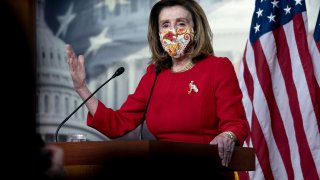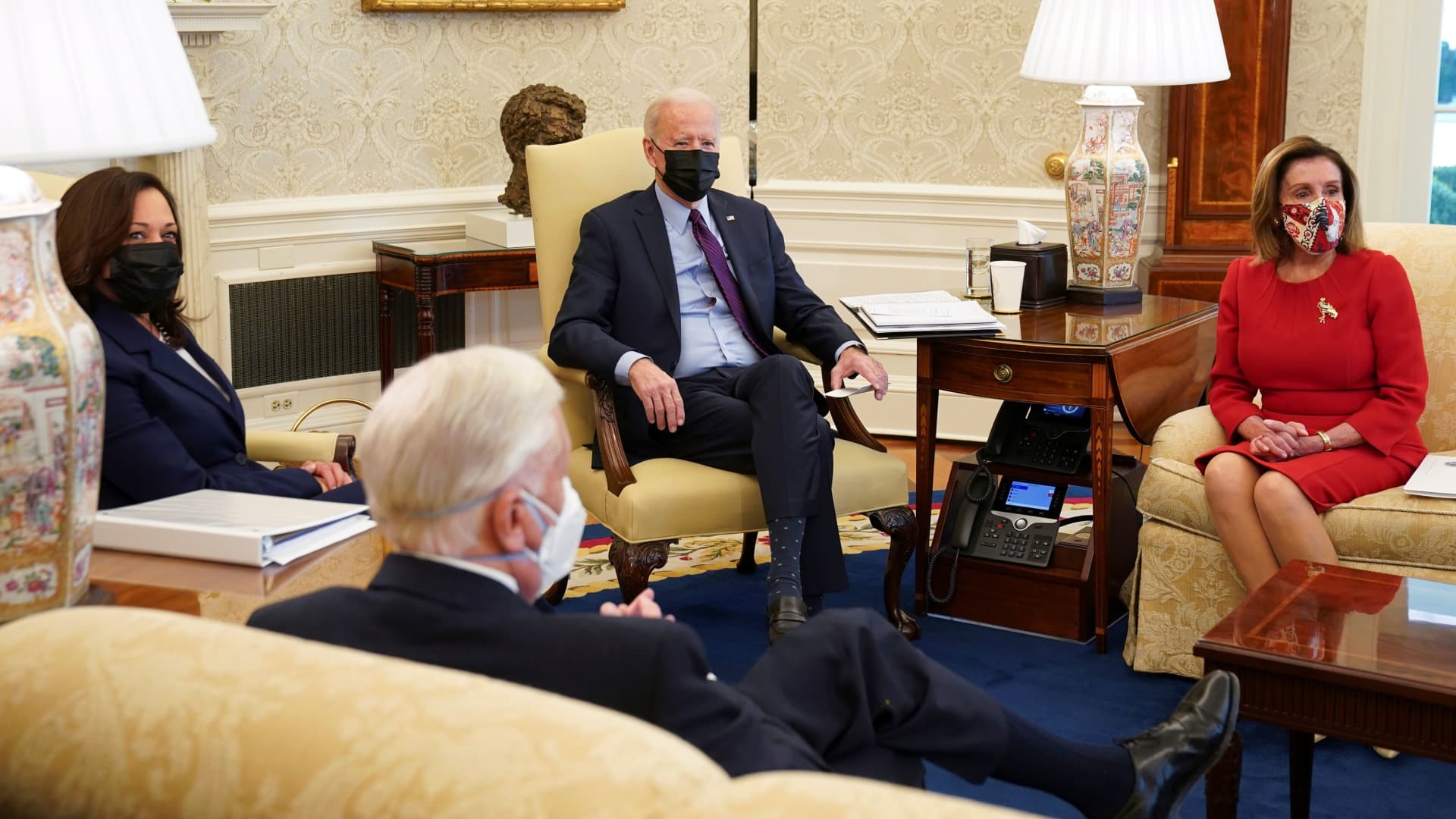
- House Democrats advanced the portion of their coronavirus relief bill that includes $1,400 direct payments, an extension of unemployment programs and payments to families with children.
- Several committees have now advanced parts of the proposal, which the House hopes to combine into one bill and pass before the end of the month.
- Democrats still need to overcome hurdles to get the legislation through the Senate, as budget reconciliation rules and skepticism about some provisions pose challenges.

Multiple House committees have approved parts of Democrats' $1.9 trillion coronavirus relief plan as the chamber moves to pass the full package by the end of the month.
The Ways and Means Committee advanced a critical portion of the legislation on Thursday night. It would send $1,400 direct payments to most Americans, extend key unemployment programs through late August and give families up to $3,600 a year per child.
Other House panels including the Education and Labor, Financial Services, Transportation and Small Business Committees have passed their pieces of the proposal. Under the arduous budget reconciliation process Democrats are using to approve the legislation without Republican votes, the House Budget Committee will combine the separate bills into one package.
On Thursday, House Speaker Nancy Pelosi told reporters that she thinks the House will approve the rescue proposal before the end of the month. The California Democrat expects the bill will get through the Senate and across President Joe Biden's desk before lifelines for jobless Americans expire on March 14.
Democrats have said they need to act as soon as possible to inject more money into efforts to contain the virus, speed up vaccinations and buoy Americans struggling to pay for food and housing. With unified but narrow control of Congress and the White House, they appear set to pass a bill on their own rather than take weeks or months to negotiate a smaller package with the GOP.
Money Report
Republicans have raised concerns about passing another massive spending bill after lawmakers approved a $900 billion aid plan in December. A group of GOP senators met with Biden earlier this month and put forward a roughly $600 billion counter offer, but Democrats rejected the plan as too small to meet the crisis.
Congress waited months to pass the December relief package after key unemployment benefits and small business programs expired last summer. The inaction contributed to millions of Americans falling into poverty, struggling to afford food and missing rent payments.
The latest government data show more than 20 million people are receiving unemployment benefits.
Democrats still have to navigate hurdles to get the bill through Congress on their own. They not only have to make the bill comply with Senate budget rules, but also cannot lose a single Democratic vote in the chamber split evenly by party.
The Ways and Means Committee portion of the House plan advanced Thursday contains a huge chunk of the overall rescue proposal. It would direct a $1,400 sum to individuals who make up to $75,000 and couples who earn up to $150,000.
To assuage concerns about effectively targeting the money — which jeopardized the plan's passage in the Senate — the payments would gradually phase out so no individual or couple making more than $100,000 or $200,000, respectively, would get a check. Senate Majority Leader Chuck Schumer, D-N.Y., said Thursday that the structure is "right in the ballpark" of what his caucus would support.
The bill as approved by Ways and Means would increase the current $300 per week federal unemployment supplement to $400, and extend it through Aug. 29. It would also keep programs expanding benefits eligibility and the number of weeks people can receive unemployment insurance in place through the same date.
The plan would also boost assistance to households with children. Americans would get up to $3,600 per child for children under 6 and $3,000 per child for children under 18.
The relief would phase out at $75,000 in income for individuals and $150,000 for couples.
Among key provisions in other parts of the legislation, it would put $20 billion into a national vaccination program, $170 billion into expenses for schools including reopening costs and $350 billion into relief for state, local and tribal governments. Biden met with a bipartisan group of governors and mayors on Friday to discuss the rescue package.
Before the meeting, he said "we need to help the states economically" and "ensure they're able to get back to schools." Biden added that he wanted to hear from the state and local officials whether they wanted him to tweak his plan.
House Democrats also advanced a $15 per hour minimum wage, and Pelosi expects the House will pass the provision in final legislation. However, it is unclear if the proposal will comply with Senate budget rules.
Two Democratic senators — Joe Manchin of West Virginia and Kyrsten Sinema of Arizona — have also expressed doubts about passing a $15 per hour minimum wage.
White House press secretary Jen Psaki said Friday that the administration would consider the views of Sinema and other senators while moving forward with the relief plan.






